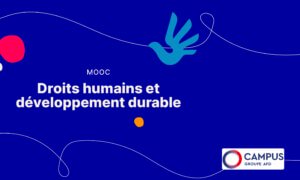Improving Urban Poor Communities’ Tenure Security, Land Rights and Living Situations in Phnom Penh
Terms of Reference (ToR) of External mid-term evaluation
PROJECT TITLE : Improving Urban Poor Communities’ Tenure Security, Land Rights and Living Situations in Phnom Penh
TYPE OF CONTRACT : Consultancy for an international consultant team
DURATION: 25 working days
ESTIMATED STARTING DATE: February 13th, 2023
ESTIMATED COMPLETION DATE: March 17th, 2023
DEADINE OF APPLICATION: January 20th, 2022
- Introduction and background
Secours Catholique-Caritas France (SCCF) and another international funder support the project “Improving Urban Poor Communities’ Tenure Security, Land Rights and Living Situations in Phnom Penh”, implemented by a local Cambodian NGO. This project commenced on the 1st January 2022, and will run for two years, until the 31st December, 2024. This mid-term evaluation will be the first for this project.
The aim of the project is to increase and strengthen access to tenure security, and democratic mechanisms for urban poor communities in Cambodia. The target groups are urban poor communities in Phnom Penh. 689 families are expected to have access to land titles and relevant documents as a result of this project. This project also aims to provide at least 6 infrastructure upgrades to communities, following a participatory process, and climate smart guidelines. Various strategies are utilized to achieve the aims and objectives of this project. SCCF’s local partner in Cambodia is notably conducting advocacy trainings, land and housing rights trainings, youth campaigns, and housing infrastructure assessments and upgrades.
The local organization seeks to incorporate external evaluations (which include extensive stakeholder consultation) into all projects, where appropriate individuals and resources can be found. The local organization aims to have all projects evaluated externally. They hoped to have an external project evaluation conducted during the proposed project implementation period. This is why the local organization chose to initiate an evaluation, in coordination with the two funders, including SCCF. This evaluation will cover the goals, and objectives of this particular 2-year project. However, this evaluation will also offer insights beyond the day to day experiences of this project, a kind of learning process for the local organization, and for future projects and activities.
Urbanization issues are intertwined with environmental challenges in Phnom Penh. This is in part due to the unsustainable development of certain areas, such as the in-filling of key lakes that protect against flooding, as well as continued rural to urban migration. Migration is indeed a key element which will affect and shape the development strategies of the city, as well as its coping mechanisms regarding growth, affordable housing, and public services. This evaluation will challenge how Climate change disproportionately affects marginalized communities and poorer populations; with the urban poor being especially vulnerable to its consequences. The combination of an increased population, the infilling of lakes, and the effects of climate change has led to serious consequences for not only to the urban poor but the citizens of Phnom Penh as a whole. One of the intended results of this project is that the local organization’s staff have increased capacity to undertake projects related to climate change challenges facing urban poor communities. This evaluation is also an opportunity to see if there has been any progress in this field. Effectively, the evaluation of this project must be linked to the organization and to the local organization’s strategy, as a whole.
- Objectives of the evaluation
The aim of this evaluation is to establish whether the defined project objective has been met, and whether the ongoing effects of this projects are being achieved and in line with the project’s initial intentions and timeline. The mid-term evaluation will highlight the changes the project has brought to urban poor communities through the analysis of the strengths and weaknesses of the local organization’s project and of strategy, in order to provide recommendations for an upcoming funding phase. Recommendations should also be made regarding the local organization ‘s strategic plan review: an assessment could be done on the pertinence of objectives in the midst of fluctuating global changes (climate change – for example heat, flooding droughts, air pollution), urbanization, migration, democratization, etc…). This should reflect the potentially changing needs of target groups, based on global changes. The evaluation must also question future challenges. How will the challenges differ in 10 to 30 years? What are the suitable responses to address the needs of the most vulnerable? What is the role of civil society?
The evaluation should help the local organization to reflect on its project and strategy for potential adjustment or improvement. The evaluation will assess how the current project contributes to and is in line with the local organization‘s overall strategy and will provide them with recommendations on how to maximize impact and meet the needs of vulnerable urban poor communities beyond December 2024. It is important to note that the local organization ‘strategic plan and the project supported by SCCF are closely intertwined.
The evaluation provides insights how to address the needs of target groups as part of the local organization’s core-work which is affected by global change, both on the urban poor settlement, and at the city level. The role of the local organization vis-à-vis its target groups on the one hand and vis-à-vis the challenges of the effects of global change should be assessed. In this respect it is the aim of the evaluation to follow-up on some of the recommendations of the strategic review.
Therefore, the final evaluation has two key objectives:
- Learning by all stakeholders, i.e. the local organization, target groups, the funders of the project, and partner organizations
- Accountability towards donors and target groups
- Questions to be answered by the evaluation
Note: Throughout all the following sections, the consultant team should include reflections on environmental impacts, inclusivity, and gender. These are all cross-cutting criteria that the local organization deems important in all its project implementation and evaluations, and will be discussed in more detail during the preparatory stage.
- Relevance – Was the project designed in a way that is relevant to reach its goals? This criterion measures the extent to which the objective of the project aligns with the needs of the beneficiaries and strategies (policies) of the local organization. It will also be important to understand in which aspects of global change (heatwaves, flooding, urbanization, access to basic resources, changes in the political environment,) can and will affect target groups as well as the work of the local organization. More specifically:
- What are most strategic themes of global change the local organization needs to take in to account to maximize the impact of its work?
- Based on recommendation 10 of the strategic review: Apart from the choice of communities: what is the local organization ‘s possible role towards global change?
- To what extent was the choice of the communities relevant?
- Does the overall approach of the project meet the needs of the population?
- Are the local organization ‘s interventions compatible with other interventions carried out in the same area with other actors? (NGOs, civil society groups, the private sector, local authorities?)
- Effectiveness – Is the objective of the project being achieved? This criterion measures the extent to which the objective of the project will (foreseeably) be achieved. Which unmet needs did the evaluators identify that would be relevant for the local organization to look into in an eventual continuation of the project? More specifically:
- To what degree is the set objective being achieved, in terms of qualitative and quantitative results?
- What are areas of global change that are addressed and not addressed systemically by the local organization?
- To what extent did the whole community develop ownership of the objectives and related activities?
- To what extent are the people and communities satisfied with the collaboration with the local organization?
- Has the project been accountable to the beneficiaries? Were there complaint mechanisms in place? Is Outcome 4 on staff capacity building consistent with staff expectations, community needs and the local organization‘s ambitions?
- Efficiency – Will the objective be achieved in an economically viable manner? This criterion measures the adequacy of the deployed resources in relation to the achieved results and effects. More specifically:
- Given the conditions of global change: what is the future role of the local organization to remain an efficient and effective organization?
- Assess to what extent the resources required were actually planned, available and used in a timely manner and at the lowest cost?
- Were the project activities cost-efficient and well dimensioned?
- To what degree were the monitoring, planning, and evaluation system and procedures used efficiently, and adequately?
- Impact – Will the project contribute to the attainment of overall development goals? This criterion assesses whether and to what extent the project will contribute towards the attainment of the intended objective. Additionally, which, if any, other positive or negative changes have occurred are to be investigated. More specifically:
- What are the noticeable changes in the lives of the people and communities and in stakeholders’ knowledge, attitudes and practices, attributable to the project (including in the field of advocacy)?
- To what extent did communities at risk achieve or progress towards land tenure security?
- To what extent did communities have increased confidence and ownership, especially women, and actively initiate, negotiate, mobilize, and organize their own advocacy activities?
- To what extent have the results achieved contributed to the three strategic goals of the local organization ‘s global strategy? How was it measured and compiled?
- To what extent did communities at risk progress towards, or achieve, land tenure security?
- To what extent did communities develop increased confidence and ownership (especially women,) and actively initiate, negotiate, mobilize and organize their own advocacy activities?
Sustainability- Will the intended positive changes (foreseeably) have a lasting effect? This criterion assesses the extent to which the positive effects have long-term benefits. More specifically:
- Given the impacts of global change for poor target groups in Cambodia: what measures could support the sustainability of achievements?
- What should the local organization and the funders do to ensure the sustainability of the project in the future, notably without further support from the local organization, and donors?
- What mechanisms have been put in place to increase the likelihood of continuation and sustainability of project activities, approaches or outcomes?
- To what extent did the local organization‘s frame of intervention (duration, activities, follow-up) allow people and communities to continue in a sustainable way to progress towards land tenure security and urban resilience?
- Methodology
One international consultant team (recipient of these ToR) and one local consultant team will compose the team of evaluators.
At the beginning of their work, they should agree on the division of tasks and based on which document they will work. Both consultants must validate the tools and written outputs. The work should be prepared and coordinated together.
- Briefing session with the local organization and SCCF and the other international funder;
- Desk review of the existing project documents (project proposal, project reports, project monitoring and evaluation framework, strategic plan, studies, etc.)
- A participative methodology is highly recommended in order to take into account the opinion of all partners and stakeholders;
- Use of mixed methods including semi-structured interviews of key informants (including project staff and relevant management staff, project funding partners, NGOs working on similar issues and national or subnational authorities, etc.) and focus group discussions with representatives of the communities targeted by the project.
- Organization of the mission
Here is a proposed schedule for the evaluation. Note that the timeframe is an estimation, and to be discussed and finalized with the consultants:
Approximate time allocated to the assignment: 25 working days.
- Preparation by consultants and field team
- Contact and distribution of roles between the two consultants
- Review of project documents and progress reports
- Agreement on activities & timeframes
- Preparation of meetings/programme
- Development of assessment methodology (involving analysis of programmes and activities in areas of time, target groups, person reached, and outcomes measured [if at all, how and with what results]).
The questions – wherever practical and possible – should be disaggregated by age, gender and other criteria such as socio-economic affiliation, disability etc.
- Submission of an inception report ( detail on methodology, data management process study, work plan) and kick-off meeting with the 3 organizations)
Estimated time: 3 days
Key output:
- Evaluation workplan and timeframe;
- Questionnaires, interview protocols, meeting schedule and focus group methodology
- Meetings and discussions with stakeholders
- Discussions with the local organization’s team and project staff
- Meeting with community members/NGOs
- Field visit to target communities
Estimated time: 10 days
Key output:
- Documented records of interviews and observations with stakeholders.
- Draft evaluation findings.
- Presentation of findings to stakeholders
- Hold (a) meeting(s) with the 3 organizations to present preliminary findings and recommendations as well as to collect feedback which will help in finalizing the report
- Incorporate feedback into findings
Estimated time: 1 day
Key output:
- Presentation of findings to the 3 organizations
- Forum for participatory feedback
- Writing Report (both Khmer and English)
- Draft Report & Final Report. The report should
- Contain an executive summary (mandatory)
- Be analytical in nature (both quantitative and qualitative)
- Be structured around issues and related findings and lessons learnt
- Include conclusions and recommendations
Estimated time: 10 days
Key output:
- Draft report delivered to the local organization, SCCF and the other supporting organization
- Presentation at the local organization’s office
- Hold meetings with relevant staff and community members on findings and recommendations.
Estimated time: 1 day
Key output:
- The local organization’s and communities’ inputs fully reflected in the final report.
- Submission of Final Report (both Khmer and English)
Estimated time: half a day
Key output:
- A report of maximum 25 pages (without annexes) in word document format with tables/graphs where appropriate comments made on the draft submitted to the 3 organizations.
- Report
The report will be expected to be 25 pages maximum. The report will be word document format with tables/graphs where appropriate comments made on the draft submitted to the three organizations, the local organization and the two funders, including SCCF. The report will contain an executive summary (mandatory), include quantitative and qualitative analysis, and be structured around issues and relevant findings, as well as lessons learnt. The report will also include a conclusion, and recommendations.
- Evaluation framework
- Contracting authority : SCCF
- Financial means:
Mission expenses – international and local transport costs, accommodation, food – are reimbursed by the SCCF on the basis of actual costs according to an established scale which will be communicated to the selected candidate.
SCCF will pay to the consultant for the entire assignment in two installments:
First installment of 40% after reception and validation of the inception report by SCCF, and the two other stakeholders of the evaluation.
Second installment of 60% after reception and validation of the final report by SCCF and the two other stakeholders of the evaluation.
- Provisional timetable of the mission, including :
o Deadline for receipt of proposals : January 20th, 2023
o Expected date for the selection of the consultant: January 27th, 2023
o Expected date of commencement of work: February 13th, 2023
- Criteria for the selection of the evaluator
The assignment will be contracted to two consultant teams (one local team who will work in collaboration with an international team to produce this evaluation.) Consultants are expected to have substantive experience in the area of civil society, knowledge on land and housing rights in urban settings, and on urbanization and climate change.
The local organization, SCCF and the other funder will make the choice of both consultants jointly. The consultants will be accountable to the three organizations.
- Profile of the international consultant team:
Education
A university degree at the postgraduate level related to urban issues and development project management.
Desired Experience
- Solid knowledge and experience on urbanization and urban adaptation to climate change (at least 5 years of experience).
- Solid understanding of urban issues and land & housing rights;, evidence-based advocacy in urban settings, understanding of global change (climate change, urbanization);
- At least 5 years of experience in evaluating NGO projects.
- Competence in sample survey techniques;
- Excellent analytical and report writing skills;
- Proven work experience in use of participatory evaluation methods for identifying measurable target indicators;
- Previous work experience in South-East Asia and good knowledge of the region (previous work in Cambodia is an added-value).
- Must be a self-starter and be able to work independently with excellent demonstrated teamwork, coordination and facilitation skills;
Skills
- Strong leadership and planning skills
- Excellent writing and presentation skills (English)
- Strong communication skills
- Ability to work in a multicultural team environment and to deliver under pressure/meet deadlines
- Ability to network with partners on various levels
- Comfortable with the necessary computer skills i.e. MS Word (personal laptop will be necessary for this mission)
- Impartial and independent of the parties
VII. How to apply
Interested consultants should submit their application (in English) at SCCF on or before January 20th, 2023 (6.00 pm, Paris time). Soft copy of the proposal should be sent to: missioncourteduree@secours-catholique.org.
The application itself should include the following components:
- Curriculum Vitae (CV)
- Track record of conducted studies, research, publication and references (a recent document relevant to the job offer).
- A technical proposal for the feasibility study, including the proposed feasibility study methodology and work plan
- Financial proposal underlying the study, including proposed fee for a maximum of 25 working days. The budget should show taxes included and excluded.
- A sample of recent writing (report or similar) relevant to the terms of reference stated above
Incomplete proposals will not be considered.
Vous souhaitez déposer un appel d’offre ?
Déposez vos appels d'offres pour vos recherches de prestations visant à renforcer votre organisation, faciliter vos projets...
Déjà inscrit ?
L’ABC des prestataires
Plus de 50 prestataires référencés dans notre base !



